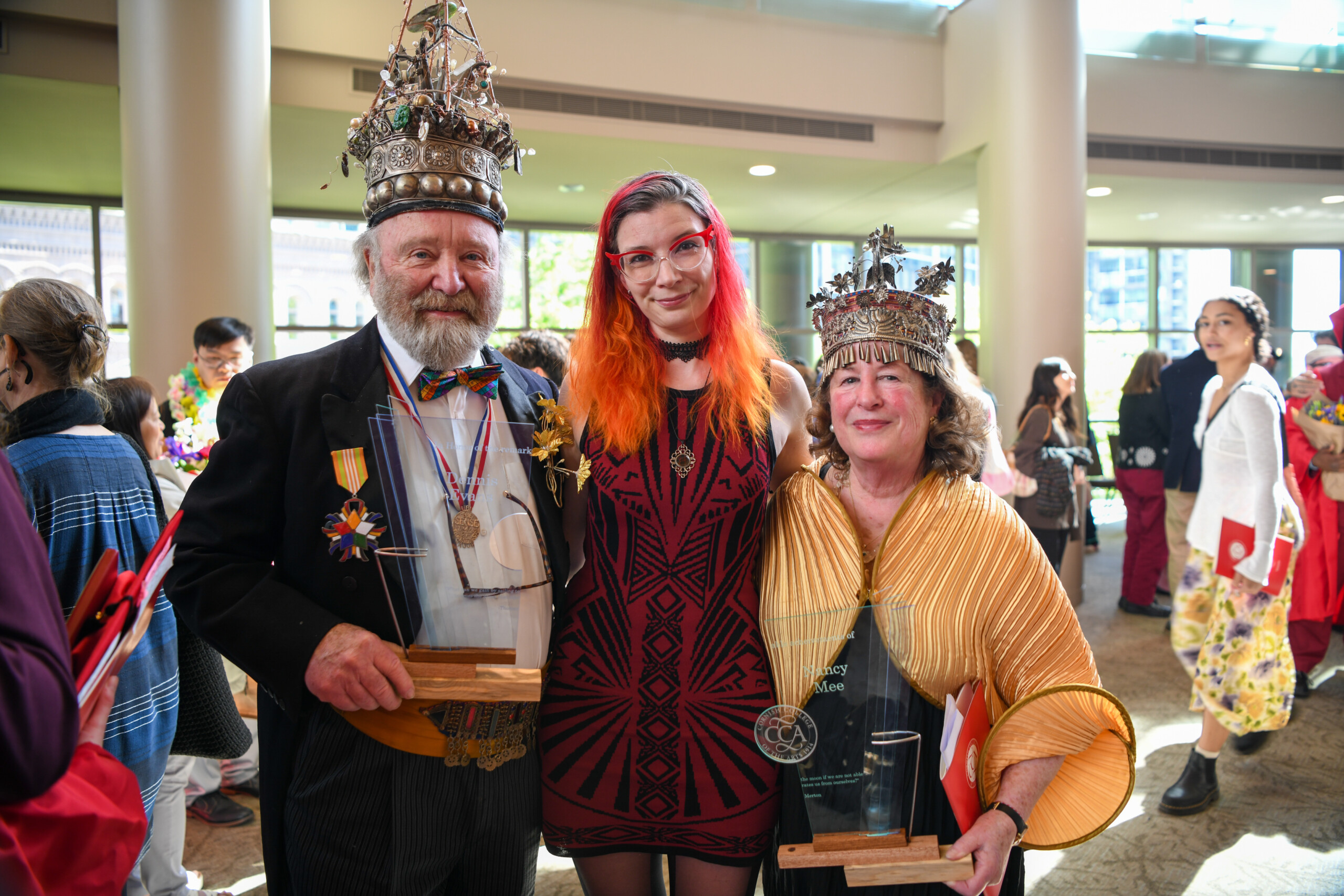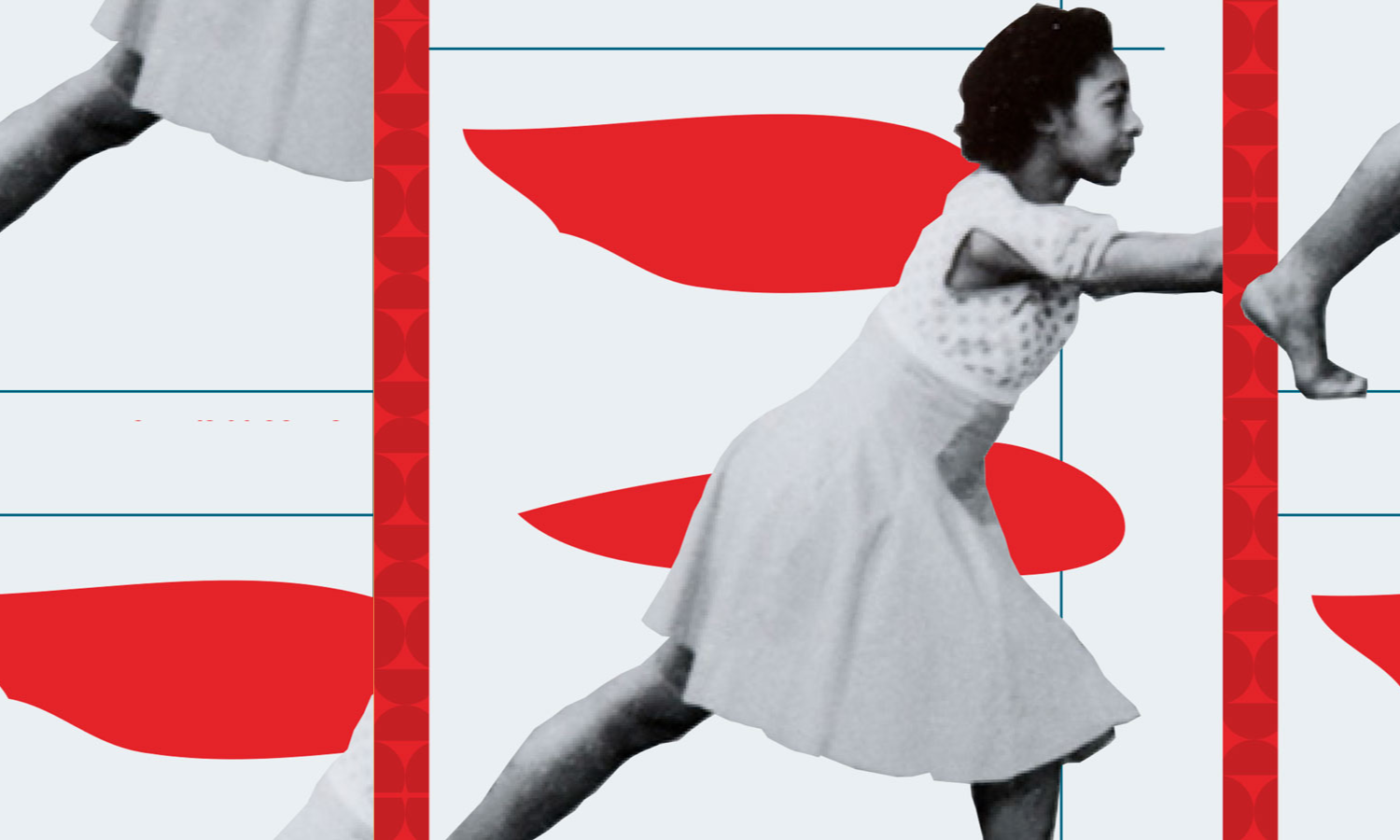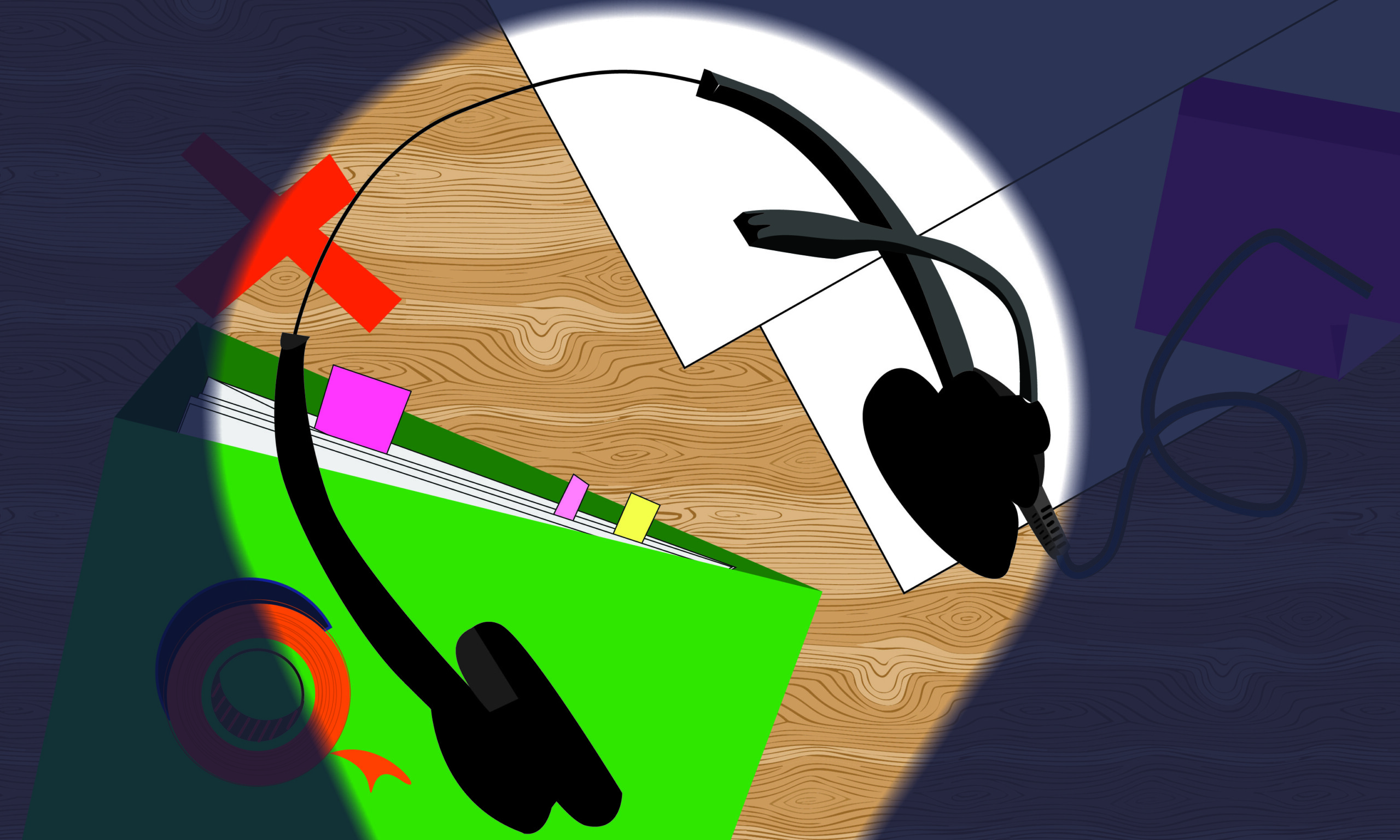Five Questions With Faculty Member Dr. Kaley Eaton
At Cornish, vocalists, instrumentalists, and composers engage in a shared curriculum, providing a unique environment that encourages focused study and experimentation. Music majors benefit from intensive private instruction in their primary area of study, while also honing advanced skills in theory, composition, and music technology. This collaborative atmosphere extends to the creation of personal artistic projects, enabling students to translate their knowledge into tangible expressions of their musical vision.
Understanding music at Cornish goes beyond technical proficiency. Students explore the intricate relationship between music, history, culture, and politics, learning to articulate these connections as performers, writers, and speakers. This holistic approach ensures that graduates are not only skilled musicians but also insightful communicators.
In a recent conversation with Dr. Kaley Eaton, the distinguished Chair of Music and Associate Professor at Cornish, we delved into the elements that contribute to thriving in this dynamic educational setting. Dr. Eaton’s reflections underscore the profound dedication of Cornish College to cultivating the musical talents and creative potential of its students. Her insights illuminate the college’s unwavering commitment to nurturing the next generation of innovative musicians.
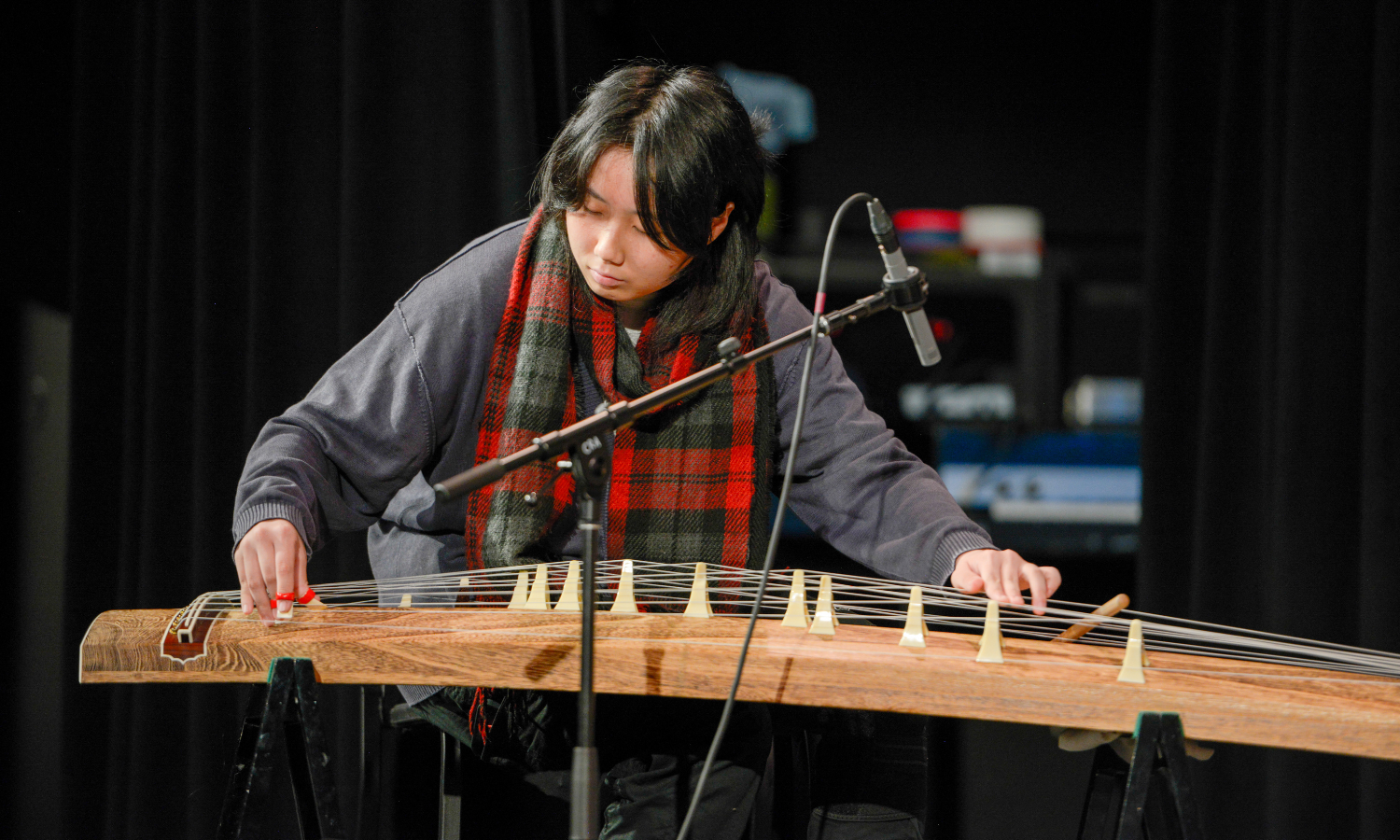
Can you give us an example of a strong Music student audition? What skills should future students work on before arriving at Cornish?
Dr. Eaton emphasizes the importance of showcasing one’s musical breadth during the audition process. “A strong application to the Cornish Music Department is more than just a performance; it’s a narrative of your musical journey,” she says. Prospective students are encouraged to present a portfolio that includes traditional performances, improvisations, and compositions—painting a full picture of their artistic capabilities. For instance, a violinist might include a traditional sonata performance, a video of improvising with an ensemble, and a composition they’ve written, showcasing their versatility and creativity.
What does the first year at Cornish look like Music student?
The first year at Cornish is designed to immerse students in both the theoretical and social aspects of music. From ensemble performances to electronic music production, students engage in a curriculum that fosters collaboration and creativity. “In your first year, you will take a class called ‘Sound and Theory in Practice,’ which is the introductory course in our electronic music and acoustics sequence. Here, you’ll learn the fundamentals of sound by creating electronic soundscapes. This course provides a foundational understanding of electronic music, acoustics, and basic tools like Ableton,” Dr. Eaton explains. “You’ll also study music theory, ear training, and keyboard skills, all while receiving private instruction from your mentor. Additionally, you might join a taiko drumming ensemble, which is ideal for students who are new to reading music.”
Students participate in student showcase concerts, the Scores of Sound festival, and foundational classes like music theory, electronic music, and musical composition. Additionally, they receive private instruction and have the ability to join diverse ensembles such as Afro pop and Ghanaian drumming, ensuring a well-rounded musical education. “Our community thrives on the connections made through music, leading to lifelong friendships and artistic partnerships,” Dr. Eaton notes.
What opportunities are available for Cornish music students on and around campus/the community?
Cornish offers a plethora of platforms for students to exhibit their work. The bi-annual student showcase and the Scores of Sound festival are just a few of the venues where students can perform and experiment with their craft. These events are not only performance opportunities but also a testament to the students’ growth and learning. Students frequently organize DIY performances around campus and engage with the local community by performing at clubs, venues, and house shows.
In addition to these performance opportunities, Cornish provides extensive resources to support student practice and collaboration. Students can rent out various practice spaces on campus, including soundproof rooms in the Annex and specialized recording studios. The Ahaldeff Studio Theater, a climate-controlled studio space equipped with a piano, lights, and a sound system, is available for auditions, rehearsals, readings, and intimate performances.
The college’s library is another invaluable resource, housing a vast catalog of over 5,473 scores, 7,522 sound recordings, and 7,422 videos. This extensive collection supports students in their studies and creative projects. Moreover, Cornish encourages interdisciplinary collaboration, allowing music students to participate in cross-department projects and productions, further enriching their educational experience.
Through these resources and opportunities, Cornish College of the Arts fosters an environment where students can thrive, explore their creativity, and develop their talents to the fullest.

Can you share a specific story during your time at Cornish that encompasses the school’s journey of artistic excellence?
Dr. Eaton recently highlighted Sheyenne Leonard’s capstone performance as a testament to Cornish’s pursuit of artistic excellence. This graduating senior’s presentation, the result of four years of dedication, featured a remarkable display of original compositions and multifaceted talent. “It’s moments like these that truly reflect the legacy of Cornish’s commitment to artistic excellence,” she notes. Cheyenne’s performance included compositions for saxophone quartet, songs where she sang and played guitar, a big band jazz ensemble with tap dancing, and her own poetic lyrics, showcasing the holistic musician she had become.
What does interdisciplinary or multidisciplinary mean to you?
At Cornish, interdisciplinary experiences are integral to the curriculum. Dr. Eaton describes this as “the fusion of music with other art forms, creating a tapestry of expression that transcends traditional boundaries.” Whether it’s a music student collaborating with a dancer or helping with a theater production Cornish nurtures an environment where art forms converse and evolve.
Cornish College of the Arts is more than an institution; it’s a crucible where musical talents are honed, and artistic identities are forged. As Dr. Eaton’s insights reveal, the journey at Cornish is one of discovery, collaboration, and boundless creativity. Whether you’re a prospective student or an admirer of the arts, Cornish offers a rich, collaborative space for creative growth, making it a cornerstone of Seattle’s artistic community.
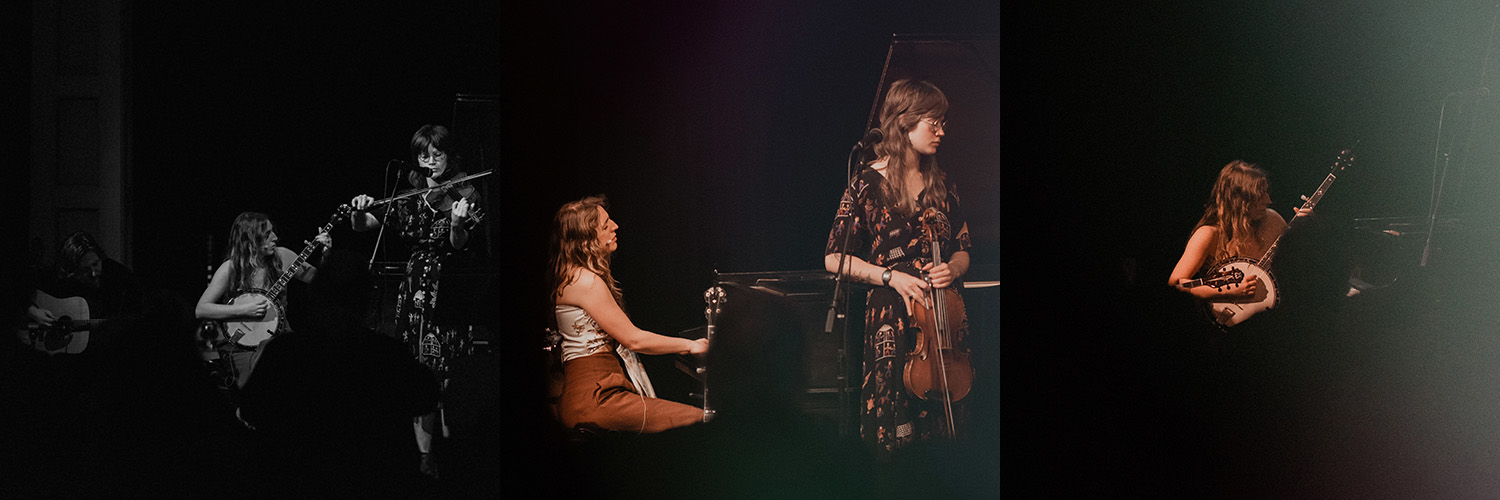
Dr. Kaley Eaton Bio:
A conservatory-trained soprano and pianist who fell into composing electronic music shortly after a stint playing Baroque lute, Seattle composer, singer-songwriter and producer Kaley Lane Eaton’s music is colored by this eclecticism. Her “disconcertingly lovely” (Seattle Weekly) compositions are “unconfined by genres and musical classifications” (V13 Media), combining folk roots with pristine chamber music and experimental noise.
Most recently, her work has been commissioned and performed by the Seattle Symphony Orchestra, Seattle Modern Orchestra, the Fresh Squeezed Opera Company (NYC), and Karin Stevens Dance, and has enjoyed support from such organizations as the Jack Straw Cultural Center, Seattle Office of Arts and Culture, the Allied Arts Foundation, the International Alliance for Women in Music, and 4Culture.
Her debut solo album cedar, an electro-chamber pop song cycle oriented in both art song and ambient IDM, came out in February 2022 on Bright Shiny Things. Cedar, both origin story and manifesto, captures a distinct Pacific Northwestern aesthetic: tuneful beauty, solitude, and destructive noise.
Her much anticipated follow-up record Lookout released March 15, 2024 on Strange Moon Records. Of Lookout, Seattle musician and writer Ian Shuler writes: “She shares space with other artists who dance between the natural and spiritual worlds: Sufjan Stevens, Weyes Blood, and Eaton’s most potent (but unstreamable) muse, Joanna Newsom. The classically trained harpist’s spirit rides throughout the album, from the galloping chorus of “Jeffrey Pine” to the Laurel Canyon lilt of “The End of the Line.” Like Newsom, Eaton still refuses to choose a lane. She composes with the full command of her four music degrees and classical training, but there’s an American-ness that can’t be shaken on Lookout. A sorrow, wildness, and expansiveness, not of the European classical tradition, but of jazz, blues and folk. Kaley Lane Eaton is all of these things and more. And none of them precisely.”
In addition to frequently performing her own work, she is an avid collaborator, interpreting the work of others and enjoying both traditional commissions and unconventional creation with composers, choreographers, solo artists and chamber ensembles across the country. As both a bandleader and vocalist/pianist, she has performed with such esteemed artists as Chris Icasiano, Kelsey Mines, James Falzone, Johnaye Kendrick, Alina To, Ronnie Malley, Tom Baker and the Tom Baker Quartet, Ray Larsen, Abbey Blackwell, Neil Welch, Steve Treseler, Ha-Yang Kim, Lily Press, and Simon Linn-Gerstein. With flutist/composer Leanna Keith and violist/composer Heather Bentley, Eaton co-directs Kin of the Moon, an improvisation-centric and technology-friendly chamber troupe in Seattle. KOTM reflects Eaton, Keith, and Bentley’s collective values: that the pursuit of higher vibrational states, whether through Music, movement, artistic creation, scholarship, or any kind of curiosity, is the destiny of humanity, and is the birthright of every person on this beautiful planet.
As a scholar with particular interest in the role of music’s relationship to feminism, technology, education, and our larger culture, Eaton has been published by KING FM’s Second Inversion (“Women, Creativity, and the Classroom” (2016) and “Reflections on Wilderness” (2017)) and Common Tone Arts (“Hit the reset button: Rethinking how we teach music technology” (2020) and “Things I wish I had known when I thought I couldn’t be a composer” (2017)).
Eaton holds a DMA in composition from the University of Washington and and is Chair of Music and Associate Professor at Cornish College of the Arts. She lives in a little blue house in Seattle with her husband Rian, dog Nikos, and the many, many plants, birds, bugs, and slugs in their garden.
To learn more about Dr. Eaton, please visit kaleylaneeaton.com or follow her on Instagram kaleylaneeatonmusic
You can listen to there new album at bandcamp.

